Hasty Heart, The (1949)
“You don’t make friends — period!”
|
Synopsis: |
|
Genres, Themes, Actors, and Directors:
Review: … Neal as a compassionate but no-nonsense nurse, and Reagan simply — being Reagan. A running gag about what a Scotsman wears under his kilt (or not) becomes tiresome, and it’s painfully egregious to watch Nigerian-British actor Orlando Martins given such a demeaning role as an “African” (from where, exactly?) who only speaks one word of English: the name — “Blossom” — given to him by his compatriots. (It’s ironic that Martins was purportedly “the most talkative person on the set.”) With all that said, the story’s central message that we shouldn’t take a person’s gruff exterior as their “true” nature is an important one, and it’s heart-warming to see the group of men banding together for Todd’s sake. Redeeming Qualities and Moments: Must See? Links: |
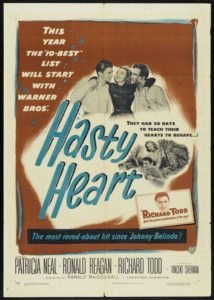
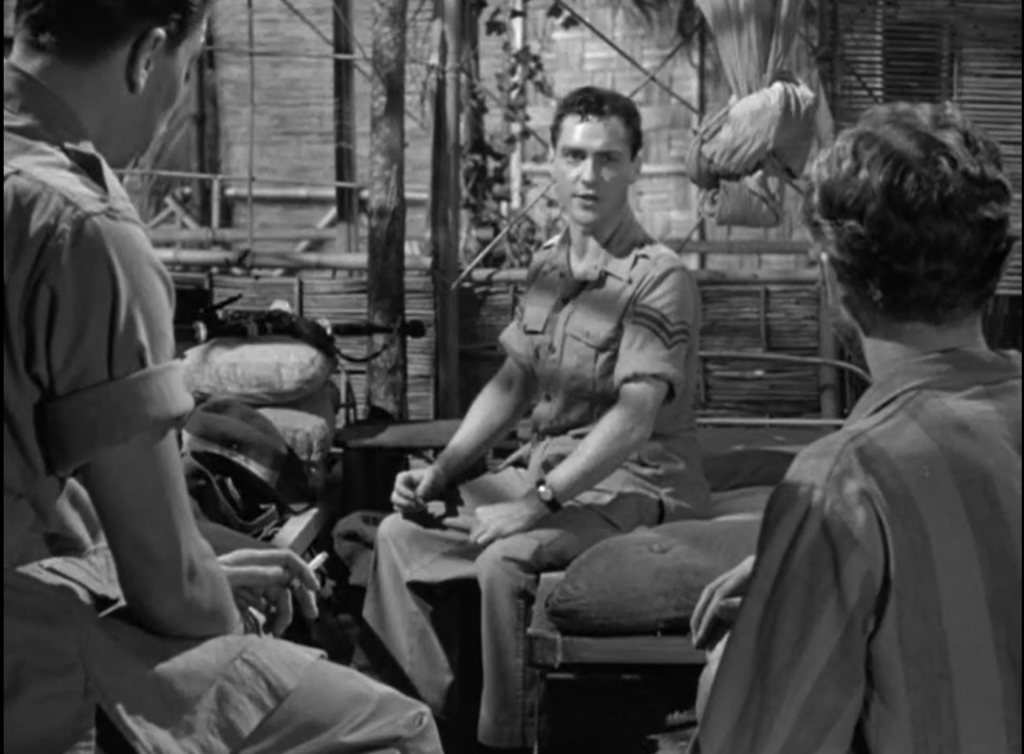
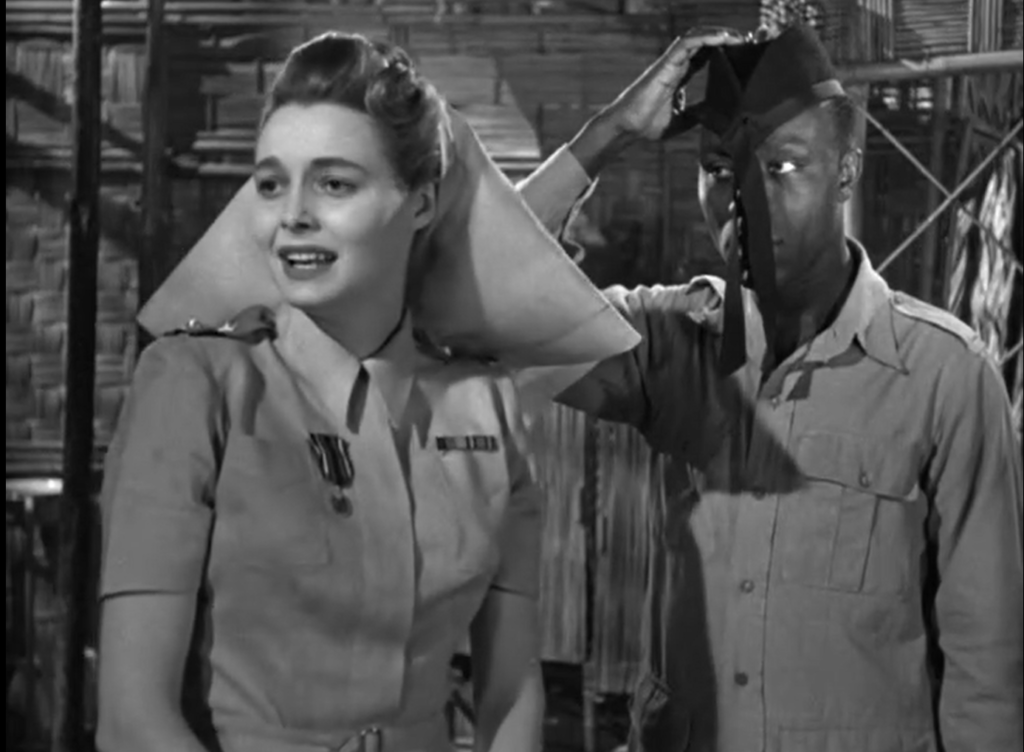
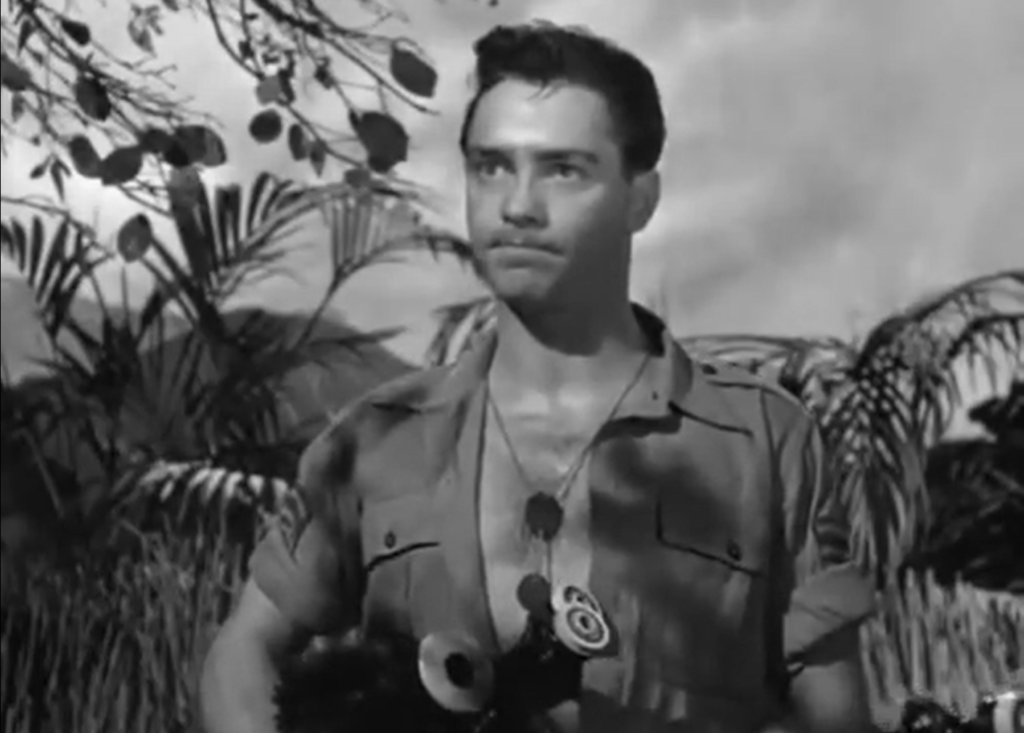
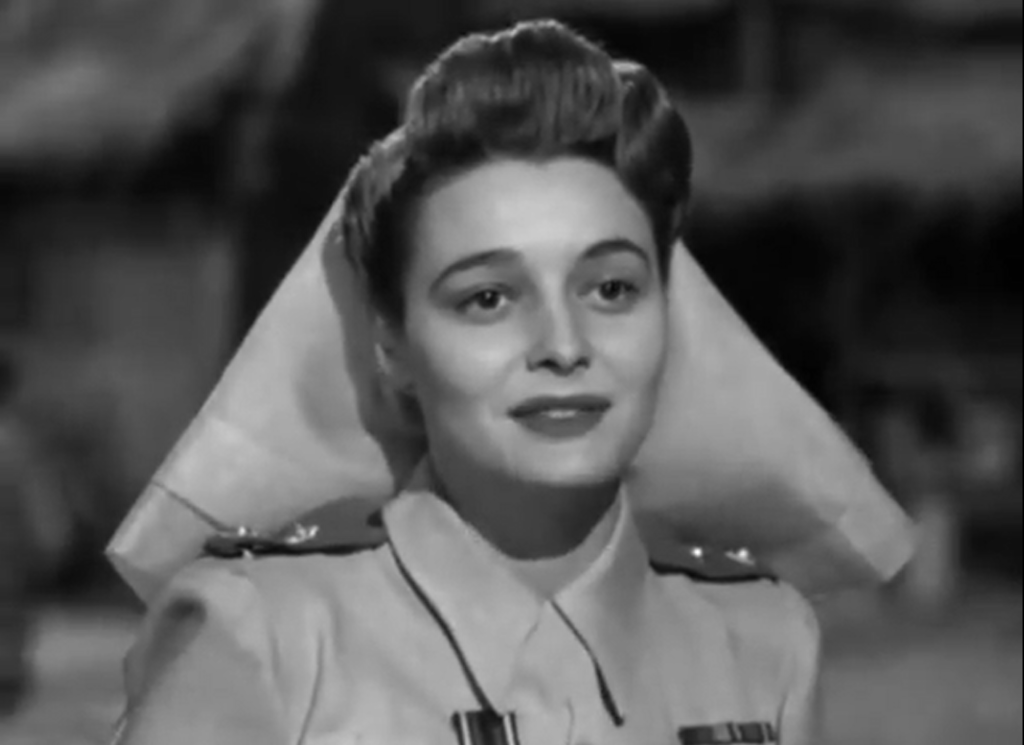
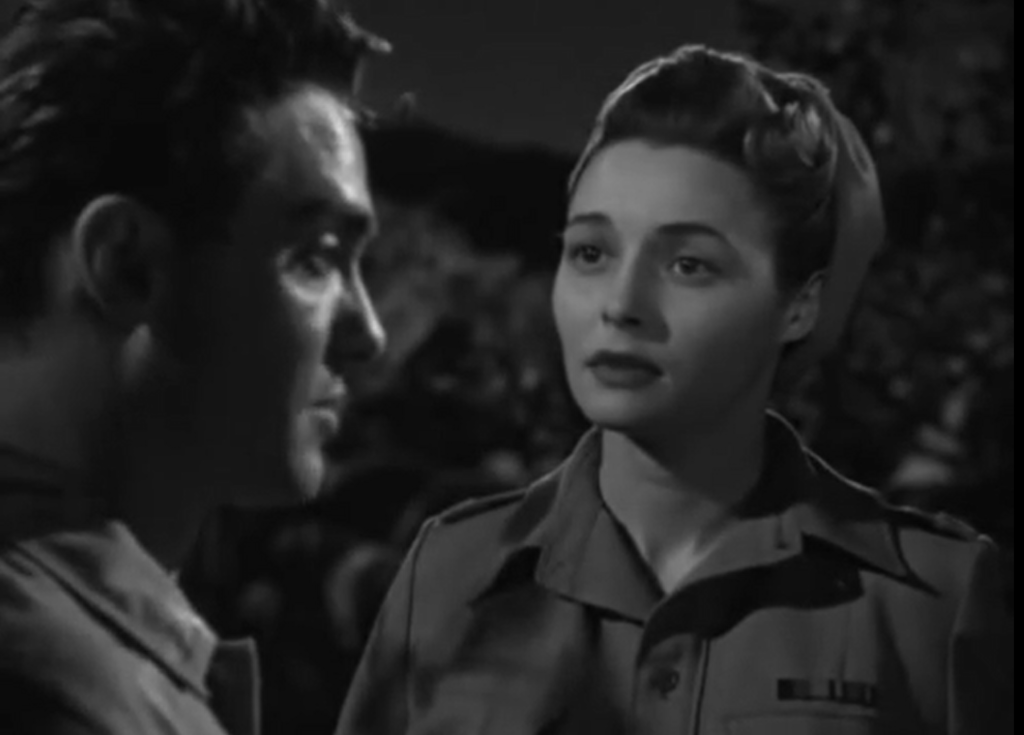
4 thoughts on “Hasty Heart, The (1949)”
First viewing (5/2/20). A once-must, for Sherman’s direction and for Todd and Neal’s performances.
The essential premise may, indeed, be “troublesome” – but it wasn’t a surprise to me. I recall, when I lived in Tokyo in the ’80s, being shocked to learn that it was fairly common for terminal patients to not be told they had little time. It was thought better to not “upset” them. While I don’t know how widespread that practice was (or is) in different cultures, it may have been rather common at the time this story is set in. … As well, I don’t get the point of the black character only having “Blossom” to say.
As per my post in ‘The ’40s-’50sin Film’ (fb):
“Well… seems to me that a man should have friends around him when he dies. That’s your job.”
‘The Hasty Heart’ (1949): In 1945, at the end of the Pacific War, a small group of men from different countries are sharing quarters in a military hospital. One day, they are given a new roommate – a Scot (Richard Todd) with a temper and a bad attitude; that should already set him apart enough but, on top of that, the Scot has not been told that he has hasn’t long to live. …This bittersweet Broadway drama by John Patrick is now largely (but not deservedly) in the shadow of his major later success – an adaptation of the comic novel ‘Teahouse of the August Moon’.
I think I avoided this film for years because it has Ronald Reagan as one of the wounded men. Since I loathed him as POTUS, it hasn’t been easy watching him on-screen anymore. This is said to be one of Reagan’s few good roles – though I will begrudgingly admit he’s better in ‘Kings Row’. If he’s not terrible here, it’s because the story itself has considerable merit. …Patricia Neal later claimed she was all wrong for the unit’s nurse – yet she does a fine job. Still, it’s Todd’s film – and his role is not an easy balancing act since he’s largely so unsympathetic. (He would win a Golden Globe and an Oscar nom – but was beat out by Broderick Crawford for ‘All the King’s Men’.)
‘THH’ gains particular momentum midway and from there on. Director Vincent Sherman added a clear-eyed touch to what could easily have been manipulative material.
It could be the moment we’re living through right now in history, but Martins’ character did me in on this film, which I otherwise enjoyed.
I would have been willing to overlook the central premise given that it IS so central — there would be no movie without that hook — but showcasing the one black man on screen as seemingly incapable of picking up any English at all after months (?) around English speakers is beyond fathom, and speaks to inherent racism and bias on the part of John Patrick.
I get it that it’s meant to be humorous, and thankfully a point IS made (by Reagan, of all people) that the other men should stop teasing Martins about his language limitations given that he speaks exactly one word more of English than any of them speak of Basuto.
But I can’t stomach watching a black character (a wounded soldier no less) being turned into an infantalized pawn for humor. Perhaps there’s more Martins could have done with the role, if given a chance; one wonders.
Actually, it never occurred to me that the black character was meant to be humorous. Mainly, I felt the inclusion of such a character was pointless and unnecessary for the story that was being told.
He very easily could have been taken out of the story altogether. But as included, he played a pivotal part in the last portion, when giving a necklace to Lachie, as Reagan drives home a point about friendship transcending language.